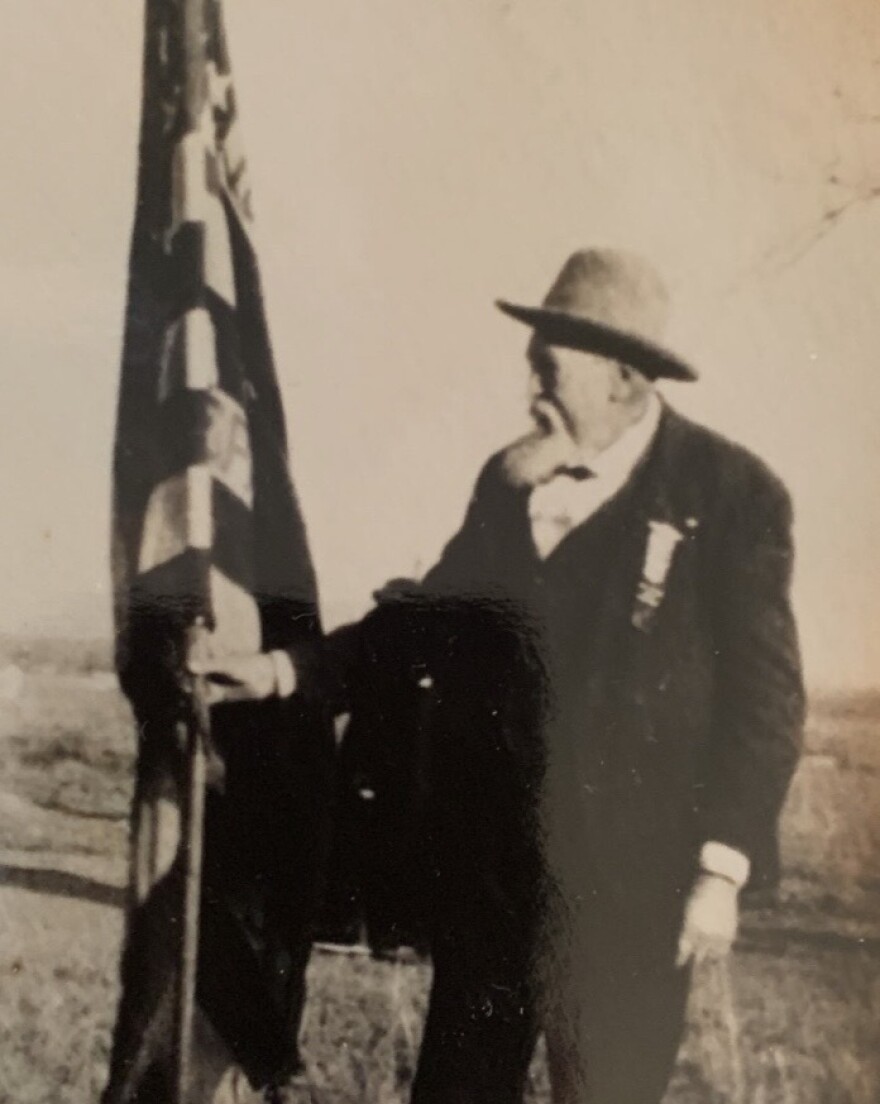MACUNGIE, Pa. — As Juneteenth approaches, the day's significance is noted through flag-raisings, festivals and meaningful reflection and conversations with those it means most.
But a Macungie man has a notable family history related to the holiday.
And it’s probably not what you’d expect.
- A Macungie man's great-grandfather carried a flag for the Union Army
- The parents of the great-grandfather were known abolitionists
- His great-grandson shares more on the man's legacy as Juneteenth approaches
Donald McLaughlin, a 10-year resident of the Lehigh County borough who was a featured speaker at Allentown's and Bethlehem's Juneteenth flag-raising ceremonies, is a great-grandson of William Henry Moorman.
Moorman has a significant role in the Union Army’s journey to Galveston, Texas, in the name of freedom for all.
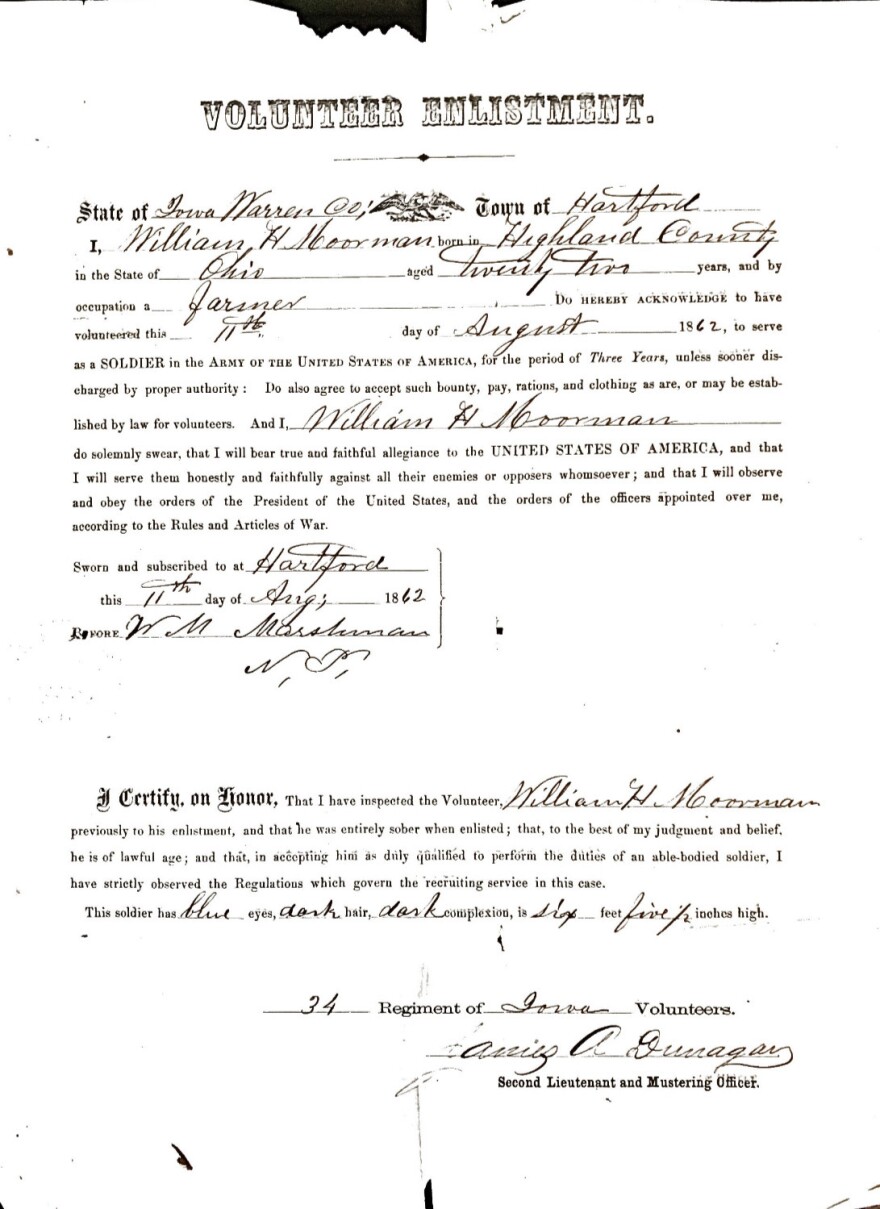
A call to arms
Moorman, a farmboy from Sandyville, Iowa, was 22 when he answered a call to arms set forth by President Abraham Lincoln, McLaughlin said.
He headed to nearby Hartford to enlist on Aug. 11, 1862.
From there, the 6-foot-5-inch Moorman was assigned to Company A of the 34th Iowa Volunteer Infantry Regiment and carried the American flag among his fellow soldiers for the next three years.
“Why would he enlist being that big, carrying a big flag? He would have been a target for people to shoot at because capturing the flags was part of the battle.”Donald McLaughlin, speaking on his great-grandfather
“Why would he enlist, being that big, carrying a big flag?” McLaughlin said, chuckling. “He would have been a target for people to shoot at because capturing the flags was part of the battle.”
The 34th faced adversity even before its first battle, as some new recruits suffered from measles, pneumonia and smallpox, according to historical accounts.
Members also were dealing with equipment shortages and cold weather, to boot.
During the coming months, the unit would see action in Mississippi at Chickasaw Bluffs, Vicksburg and Yazoo City, along with battles at Arkansas Post, Arkansas and Fort Esperanza, Texas, to name a few, McLaughlin said.
The group’s final campaign took place at Fort Blakely, near Alabama’s coast and the surrounding Mobile Bay.
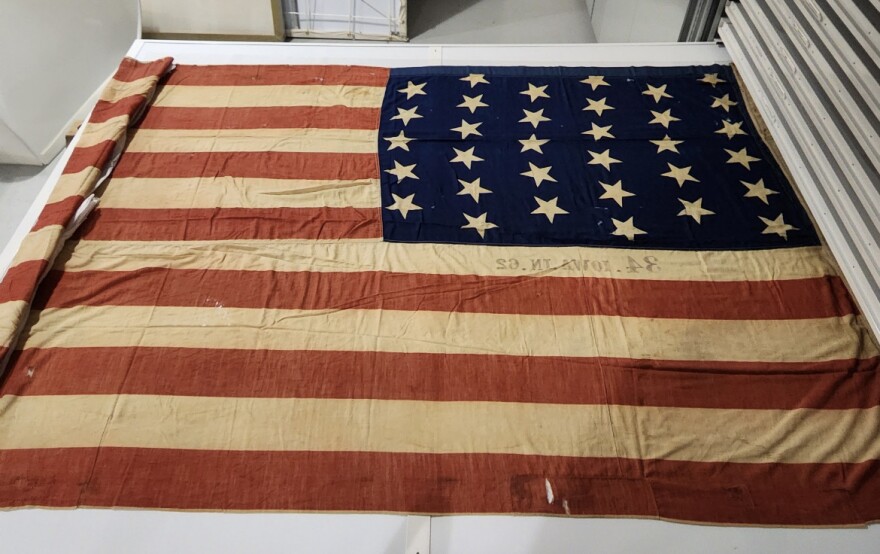
The Union Army outnumbered its foe by thousands, and Black freedmen and runaway slaves were among the ranks of those who took the fort, according to American Battlefield Trust.
The final battle there took place on April 9, 1865, the same day General Robert E. Lee, commander of the Confederate Army of Northern Virginia, surrendered to Union forces at Appomattox Courthouse in Virginia.
However, it wasn’t quite time for the 34th to head home for good.
A month later, on May 12, the unit, along with other groups, got orders to escort the Commander of the District of Texas Gen. Gordon Granger to Galveston to assume his new post there.
He also had a historic to-do list to finish once they arrived.
Leaving in early June, the unit set sail on a four-day trip on the open sea heading for Galveston.
In the meantime, another unit of Black soldiers was busy securing the city.
“A brigade of the 25th Army Corps, comprised of more than 1,000 African-descendant soldiers, arrived in Galveston and captured Galveston on June 5, 1865, a week before Granger’s arrival.”Library of Congress website
“A brigade of the 25th Army Corps, comprised of more than 1,000 African-descendant soldiers, arrived in Galveston and captured Galveston on June 5, 1865, a week before Granger’s arrival,” the Library of Congress website states.
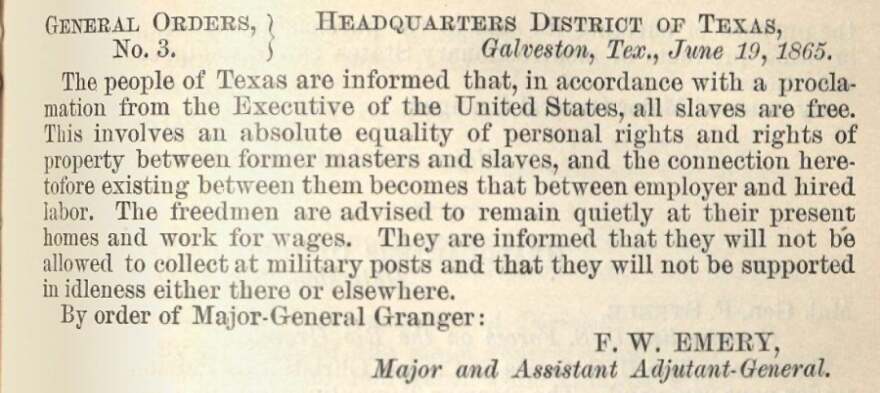
After Granger and others arrived in Texas, the general shared the news that the enslaved people there had been officially free for the past two and a half years.
The lack of Union soldiers in the state made it difficult to enforce the Emancipation Proclamation for so long, according to Galveston Historical Society.
Moorman was discharged from his Army service on Aug. 15, 1865, in Houston, Texas.
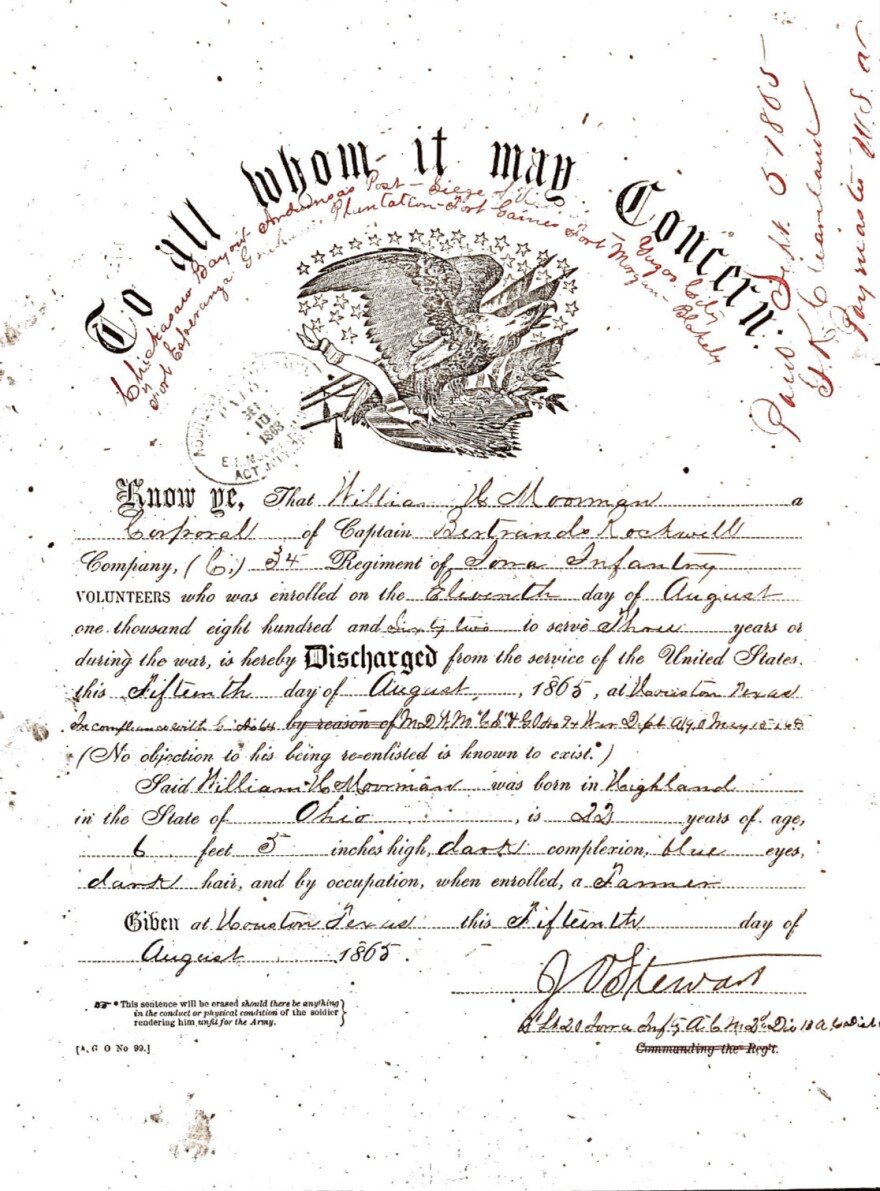
'To be that which I seem'
Just hours before McLaughlin’s interview with LehighValleyNews.com, he said he made a discovery regarding Moorman’s parents, John Thomas Moorman and Mary VanPelt Moorman.
Based on the results of a grant-funded study by the Iowa Network to Freedom project that highlighted Underground Railroad membership in the state, the two were recognized as abolitionists and conductors-station agents involved in the movement.
The motto on the Moorman family crest reads, “Esse Quam Videri,” or “To be that which I seem.”
“It chokes me up because I remember my mom saying that over and over, and [me] not having a clue what it meant,” McLaughlin said. “But it meant that he would enlist, I took [it] because he believed in it.”
'Elevate, celebrate and educate'
McLaughlin added that he was honored to speak on behalf of his great-grandfather at the recent flag raisings, and he’s excited for the upcoming day to “elevate, celebrate and educate.”
“Every journey has a first step. We as a country still have a lot more steps to take along that path."Donald McLaughlin, great-grandson of William Henry Moorman
“Every journey has a first step. We as a country still have a lot more steps to take along that path.
It’s the "first time in our history that our country had actually shed blood towards that goal," he said. "And it was a step toward ‘liberty for all.’”
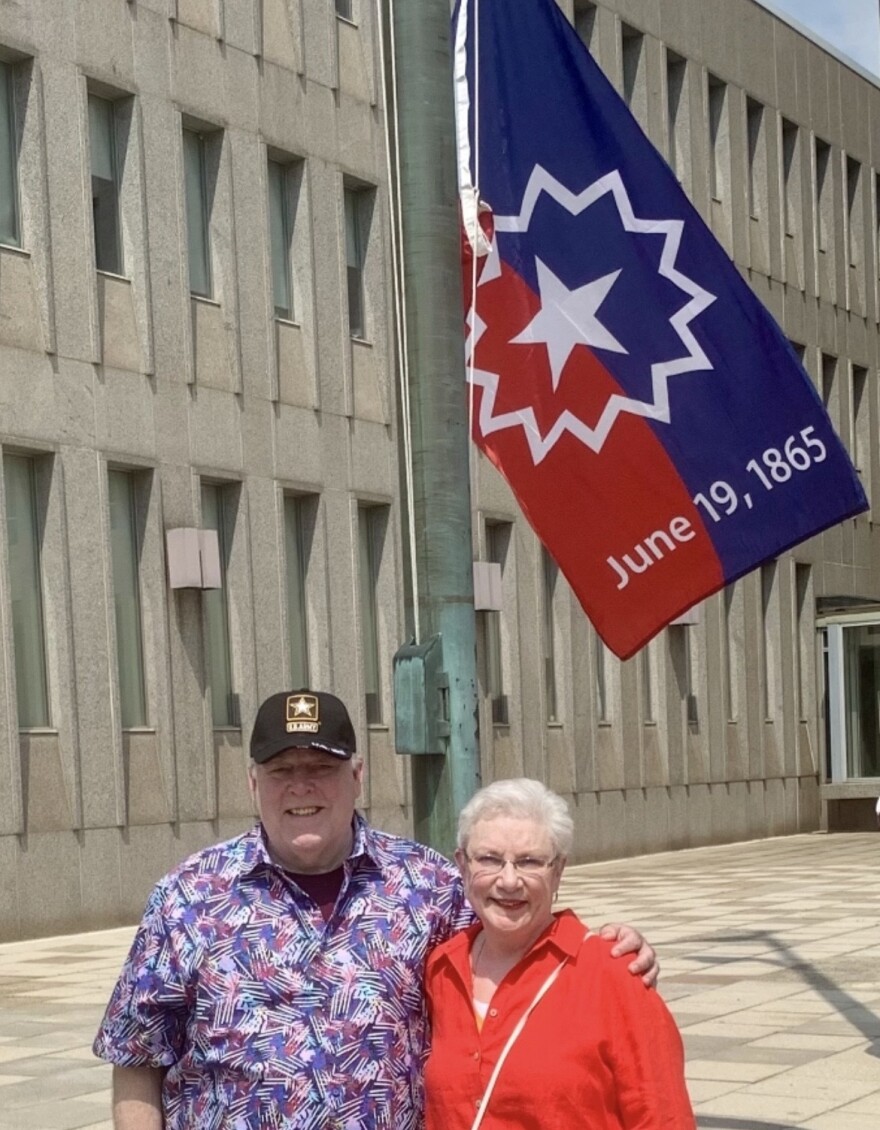
The Keystone State declared Juneteenth an officially recognized holiday in 2019.

